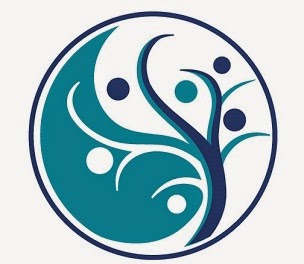The tipping point is that magic moment when an idea, trend, or social behavior
crosses a threshold, tips, and spreads like wildfire.
Malcolm Gladwell
Are we nearing a tipping point regarding our tolerance for relationship and sexual abuse? I think so.
Advocates (mostly women) have been crusading against domestic violence and sexual assault since the 70's... but their voices have often been the only ones speaking out. More and more I'm hearing other voices joining that chorus. About 10 years ago men started speaking out. Each day, I hear new voices emerging: sportscasters, college recruiters, business owners, President Obama.
In the many news stories about relationship abuse and sexual violence I'm hearing a different tone... intolerance of abuse.
Unlike changing an individual's behavior, community level change requires that the right combination of factors are present. In other social change initiatives (like reducing smoking or drunk driving) we've observed three key strategies to creating change:
1) access (e.g. limiting minors ability to purchase tobacco or alcohol)
2) policy and procedure (e.g., laws and enforcement of or organizations' rules and practices) , and
3) social norms.
In just the past year I've seen significant changes on the second two indicators. More and more companies and institutions are cognizant of how abuse can leave the home and affect their business and brand. This became unmistakably clear as the Ray Rice incident unfolded. When the videotape of the elevator assault became public, the NFL's response to the incident was called into question. We quickly saw how the conduct of players reflects on the League. When the NFL revised their code of conduct to implement game suspensions for violent incidents, we immediately saw that players' careers and team performance could be affected by their conduct off the field. Similarly the recent press coverage of an alleged culture of sexual violence at University of Virginia has some students and parents thinking twice about this as their college of choice. When relationship and sexual violence steps out of the shadows, and has an impact on organizations'' brands and bottom line, we start to notice.
Our attitudes about abuse are changing. Why all of a sudden? Social media has a lot to do with increasing our awareness and understanding. For many years the focus was on the victim... Why doesn't she (or he!) leave the abusive relationship? or If you're drinking and flirting what can you expect? Those old attitudes haven't held sway as social media has given us a more in-depth look at relationship and sexual violence. We've seen photos sent around to friends as young men sexually violate intoxicated teenage girls. Reporters cover the minute-to-minute details of how frightened victims call friends for help and later feel re-traumatized as their college, inexperienced in adjudicating rape cases, mishandles the process.
We could easily downplay the impact of assaults when our information was a quick news segment, but with social media access we're exposed to the gritty brutality of victimization. When the first news story reported that Ray Rice had knocked his then fiancée unconscious in an elevator there was no public outcry... but when we saw the brutality of the attack our reactions changed. Over the years there have been allegations against Bill Cosby that were but transient whispers in the news stories; never investigated. never founded, never proven wrong. Yet recently one comedienne's reference to an alleged assault by Cosby a decade ago has uncorked so many similar accusations from years ago that not only are networks suddenly pulling his shows, but institutions are distancing themselves from his benefaction. Nothing new has transpired, but because the way we receive information has changed, the small solitary voices of the past joined together very quickly into a chorus with enough similarity in their stories, that we're not comfortable with the ignoring the issue until we have more answers.
So how does this change in social consciousness affect us? We've shifted the responsibility. Traditionally we've placed the burden of ending abuse on the very people who are being victimized. That approach hasn't worked. Telling people not to abuse is about as effective as "Just say no" was in addressing drug abuse.
As we see and understand more we're realizing that to end relationship and sexual violence we all need to be part of the solution. It's the old adage, If you're not part of the solution you're part of the problem.
So people tell me "I care about this issue but I don't know how to help...what can I do?" Great question; here's some suggestions to get you started
1) Learn more- the NYS Office or the Prevention of Domestic Violence's new campaign, Don't Do Nothing has quick videos for the public to learn how to identify abuse and get involved.
2) Talk about the issue. Share articles. Generate a discussion.
3) Concerned about how domestic violence affects your workplace safety, productivity, or employees' well being? Wellspring has resources for employers to promote awareness and assist managers in addressing employee concerns. Call us... the training and resources are free.
4) If you're concerned that someone you know may need help tell them you care and provide them with resources, e.g. Wellspring's office number (518.583.0280) or 24/hour hotline (518.584.8188)
